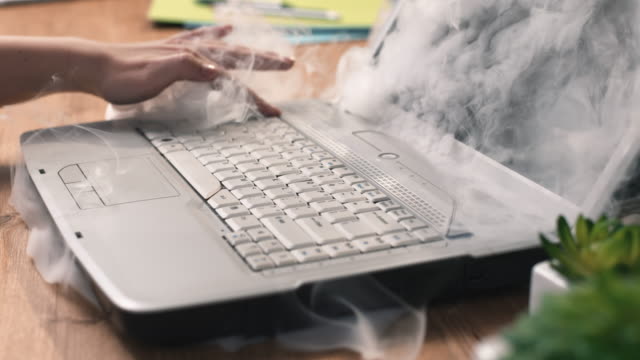Laptops are a necessary part of life for many people. They allow us to stay connected with the world while on the go, and they are essential tools for business owners and students. However, one of the biggest problems with laptops is that they can overheat very easily. In this blog post, we will discuss twelve ways to keep your laptop from overheating. Following these tips will help you stay productive and avoid damaging your computer!

11 cooling tips for laptops
If you use your laptop for long periods of time, it is inevitable that it will eventually overheat. However, there are a few things you can do to help keep your laptop cool and prevent it from overheating. Try these 11 cooling tips for laptops:
Invest in a laptop cooling pad
A cooling pad is one of the most effective ways to keep your laptop from overheating. It helps to dissipate heat away from the laptop and can prolong its life. Make sure you choose a cooling pad that is the right size for your laptop and that has good reviews.
Make sure your workspace is well-ventilated
Good airflow is essential for preventing laptops from overheating. If you are using your laptop in a cramped space, it is more likely to overheat. Make sure there is plenty of room around your computer and that the air can circulate freely.
Keep your laptop out of direct sunlight
Direct sunlight can cause your laptop to overheat quickly. If you are using your computer outdoors, make sure to keep it in the shade.
Avoid using demanding programs for long periods of time
If you know you will be working on a resource-intensive project, take breaks often to give your laptop a chance to cool down. Running demanding programs for too long can cause your computer to overheat.
Reduce the number of programs running in the background
When you have too many programs running at once, it can put a strain on your computer and cause it to overheat. Close any programs you are not using, and consider disabling unnecessary startup programs.
Clean the vents and fans regularly
Over time, dust and debris can build up on the vents and fans of your laptop, which can impede airflow and cause overheating. Make sure to clean these areas often to ensure optimal performance.
Update your laptop’s BIOS and drivers regularly
Updating your BIOS (basic input/output system) and drivers helps to improve compatibility with new software and can also help prevent overheating. Check with your manufacturer for updates specific to your model of laptop.
Use power-saving mode when possible
Power-saving mode is a great way to conserve energy – but it also helps to keep your laptop from overheating. This mode reduces the performance of your computer, which can help to prevent overheating.
Use a lighter-weight desktop wallpaper
Lighter colors reflect heat better than dark colors, so using a light-colored desktop wallpaper can help to keep your laptop cool. You can also find wallpapers specifically designed to promote cooling.
Monitor your laptop’s temperature
There are many free programs available that allow you to monitor the temperature of your laptop in real time. This is a great way to keep an eye on things and make sure your computer isn’t getting too hot.
Take breaks often
If you are working on your laptop for extended periods of time, it is important to take breaks often. This will give your body a break and also give your laptop a chance to cool down.
Conclusion

By following these cooling tips for laptops, you can help prevent your computer from overheating. Overheating can cause damage to your laptop and lead to lost data, so it is important to take steps to avoid it. Implementing these tips will help you keep your laptop running smoothly for years to come. Thanks for reading!

